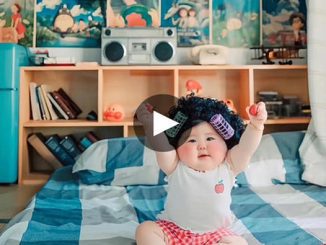Motherhood is often depicted as a journey filled with surprises, and for many women, these surprises include discovering a fierce protective instinct they didn’t know they had. This instinct becomes even more pronounced when their children are born with unexpected conditions. Patricia Williams is intimately familiar with the unpredictability of childbearing: as the mother of four, she has two boys who were born with albinism.

Rather than seeing the diagnosis as a setback, Patricia and her family chose to embrace and celebrate their children’s uniqueness. Below, she shares more about their journey, how she instills confidence in her children, and her advice for other parents in similar situations.

“When my sons were born with albinism, it was definitely unexpected. At first, there were concerns and uncertainties about what this meant for their future. However, as we educated ourselves about albinism and connected with support networks, we realized that it was just another aspect of their identity, not something to be feared or ashamed of.
One of the biggest challenges was helping our sons navigate the world with confidence. Albinism comes with various visual impairments, such as sensitivity to light and low vision, which can make everyday tasks more difficult. However, we’ve always encouraged them to embrace their differences and find creative solutions to overcome any obstacles they encounter.

Building self-esteem and resilience has been a priority for us as parents. We emphasize the importance of self-acceptance and celebrating their accomplishments, no matter how small. We’ve also worked to create an environment where they feel supported and valued for who they are, rather than focusing on what they lack.
It’s essential for parents in similar situations to educate themselves about their child’s condition and seek out resources and support. Knowledge is power, and the more you understand about your child’s needs, the better equipped you’ll be to advocate for them and help them thrive.

Additionally, don’t underestimate the importance of building a strong support network. Whether it’s connecting with other parents facing similar challenges or seeking guidance from medical professionals and educators, having people who understand and can offer support can make all the difference.
Above all, remember that your child is not defined by their condition. They are unique individuals with their own strengths, talents, and dreams. By embracing their differences and fostering their self-confidence, you can empower them to navigate the world with resilience and grace.”


